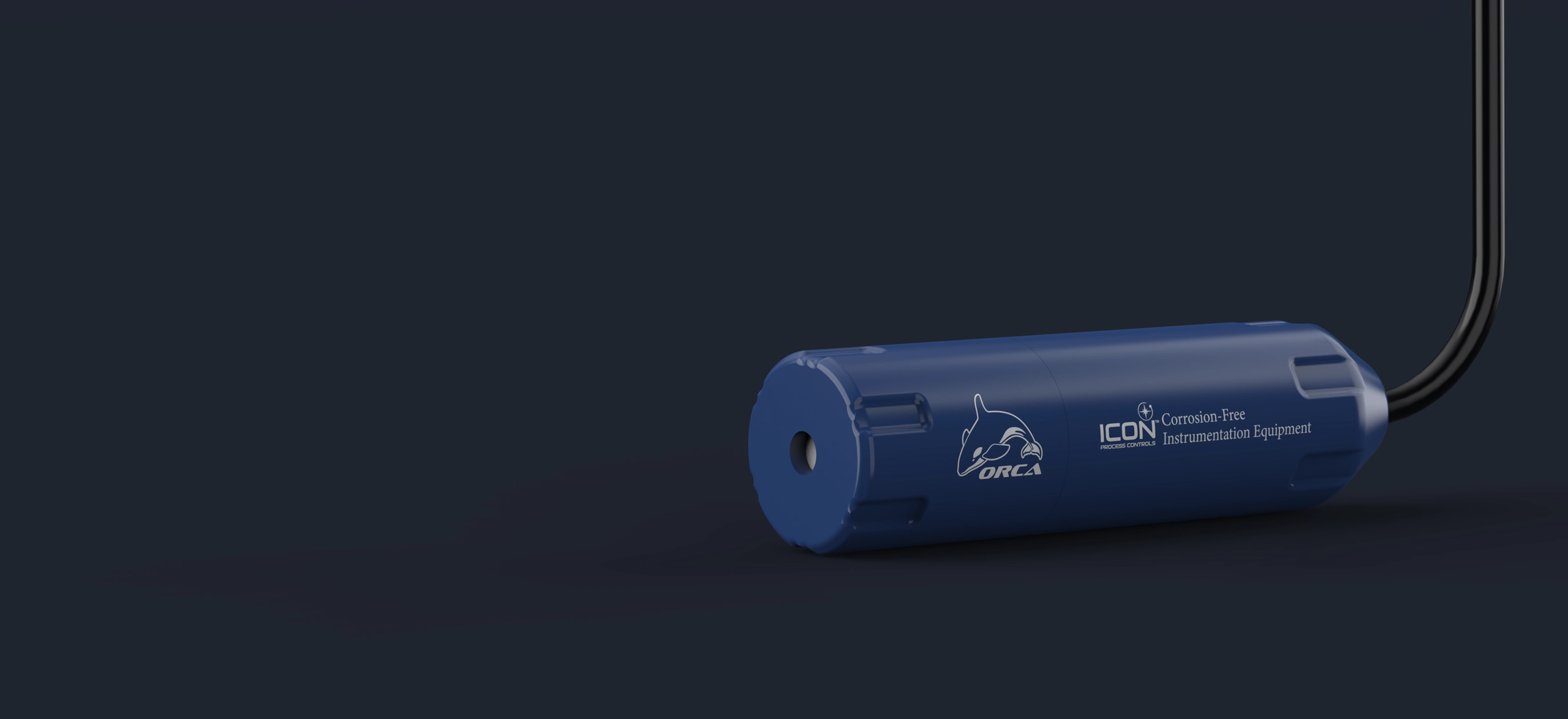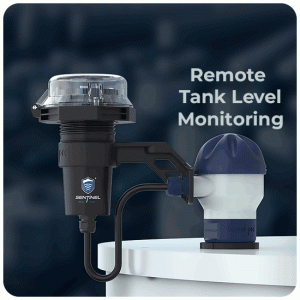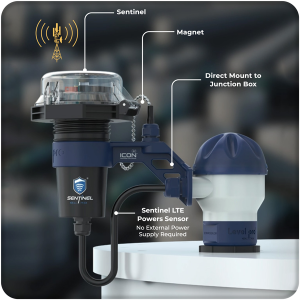WHAT TO KNOW ABOUT LIQUID LEVEL SENSORS FOR CHEMICALS

In industries such as chemical processing, water treatment, and pharmaceuticals, precise monitoring of liquid levels is crucial for maintaining safety, efficiency, and regulatory compliance. Liquid level sensors are indispensable tools that provide real-time data, enabling operators to make informed decisions and prevent potential hazards. This comprehensive guide explores the essential aspects of liquid level sensors for chemicals, emphasizing the advanced solutions offered by Icon Process Controls.
Table Of Contents
- Understanding Liquid Level Sensors
- Importance of Accurate Chemical Level Monitoring
- Types of Liquid Level Sensors Suitable for Chemicals
- Key Factors to Consider When Selecting Sensors for Chemicals
- Chemical Compatibility
- Measurement Range and Accuracy
- Environmental Conditions
- Maintenance and Durability
- Icon Process Controls’ Solutions for Chemical Level Monitoring
- Ensuring Occupational Safety and Health Compliance
- Adhering to Environmental Protection Standards
- User Experiences: Real-World Insights
- Frequently Asked Questions
- Conclusion
Understanding Liquid Level Sensors
Liquid level sensors are devices designed to detect and measure the level of liquids within containers, tanks, or vessels. They play a vital role in various industrial processes by providing accurate measurements that inform operational decisions and ensure safety.
Importance Of Accurate Chemical Level Monitoring
Accurate monitoring of chemical levels is essential for several reasons:
- Safety: Prevents overflows and leaks that could lead to hazardous situations for personnel and equipment.
- Process Efficiency: Ensures optimal chemical usage, reducing waste and improving product quality.
- Regulatory Compliance: Meets industry standards and environmental regulations, avoiding legal penalties.
Types Of Liquid Level Sensors Suitable For Chemicals
Selecting the appropriate sensor type is crucial for effective chemical level monitoring. Here are some suitable options:
SUBMERSIBLE LEVEL SENSORS
Designed to be immersed directly into the chemical, these sensors measure pressure to determine liquid levels.
Advantages:
- Accurate measurements in turbulent conditions
- Durable in high-temperature and high-pressure environments
- Resistant to corrosion from harsh chemicals
Source: Liquid Level Sensors: Understanding Their Role – ICON Process Controls
RADAR LEVEL SENSORS
Utilize microwave signals to measure liquid levels without direct contact, making them ideal for corrosive chemicals.
Advantages:
- Non-contact measurement suitable for corrosive or hazardous liquids
- Unaffected by vapor, outgassing, temperature, or pressure variations
- High-precision measurements in challenging environments
Source: All About Liquid Level Sensors – ICON Process Controls
ULTRASONIC LEVEL SENSORS
Employ sound waves to determine liquid levels, offering non-contact measurement suitable for various applications.
Advantages:
- Accurate readings in various applications
- Available with explosion-proof options for hazardous areas
- Unaffected by changes in liquid density or conductivity
Source: Most Reliable Liquid Level Sensors – ICON Process Controls
FLOAT LEVEL SENSORS
Use a buoyant object that moves with the liquid surface to indicate level changes.
Advantages:
- Simple and cost-effective solution
- Suitable for point level detection
- Easy installation and maintenance
Source: What is a Liquid Level Sensor? – ICON Process Controls
Key Factors To Consider When Selecting Sensors For Chemicals
Choosing the right sensor involves evaluating several critical factors:
CHEMICAL COMPATIBILITY
Ensure the sensor materials can withstand the specific chemicals in your application to prevent corrosion and degradation. Materials like PVC, PP, PVDF, and PTFE Teflon® offer excellent resistance to aggressive chemicals.
Source: Best Chemical Liquid Level Sensors – ICON Process Controls
MEASUREMENT RANGE AND ACCURACY
Identify the required measurement range and accuracy for your application. Different sensors offer varying levels of precision and are suitable for specific ranges.
ENVIRONMENTAL CONDITIONS
Consider the operating environment, including temperature, pressure, humidity, and potential exposure to vapors or foam. Select sensors designed to withstand these conditions.
MAINTENANCE AND DURABILITY
Opt for sensors that are easy to install and require minimal maintenance. Wireless sensors eliminate the need for complex wiring, simplifying the installation process.
Icon Process Controls’ Solutions For Chemical Level Monitoring
Icon Process Controls offers a diverse range of liquid level sensors designed to meet the unique needs of various industries. Key features include:
- Corrosion Resistance: Constructed from materials like PVC, PP, PVDF, and PTFE Teflon®, they resist aggressive chemicals.
- High Accuracy: Provide precise measurements, essential for maintaining process control and safety.
- Durability: Built to withstand harsh industrial conditions, ensuring long-term reliability.
- Minimal Maintenance: Designed for easy installation and low upkeep, reducing operational downtime.
Source: Liquid Level Sensors | Transmitters – ICON Process Controls
Ensuring Occupational Safety And Health Compliance
Adhering to Occupational Safety and Health Administration (OSHA) standards is essential for industrial operations. Icon’s chemical liquid level sensors assist in:
- Preventing Accidents: By providing accurate level measurements, they help avoid overflows and spills.
- Protecting Workers: Ensuring safe handling and storage of hazardous chemicals.
- Maintaining Compliance:
Sources
Maintaining Compliance: Ensuring that operations adhere to OSHA standards for chemical handling and spill prevention, reducing the risk of workplace accidents and regulatory penalties.
Source: OSHA Chemical Hazard Standards
Adhering To Environmental Protection Standards
Liquid level sensors also play a pivotal role in meeting environmental regulations by:
- Preventing Contamination: Accurate monitoring reduces the chances of leaks or spills, preventing harmful chemicals from polluting soil and water sources.
- Promoting Sustainability: Efficient chemical management minimizes waste, supporting eco-friendly practices.
- Regulatory Compliance: Early detection of issues helps industries align with Environmental Protection Agency (EPA) standards, avoiding fines and reputational damage.
Source: Environmental Protection Agency (EPA)
User Experiences: Real-World Insights
Karen M., Chemical Plant Supervisor:
“We’ve been using Icon’s radar sensors for three years, and they’ve made a noticeable difference in our operations. The non-contact design is perfect for corrosive chemicals, and the real-time data prevents costly mistakes.”
James H., Environmental Compliance Manager:
“Switching to Icon’s ultrasonic sensors has streamlined our compliance process. Their durability and precise monitoring have significantly reduced our environmental risks.”
Ravi S., Operations Engineer:
“The corrosion-resistant materials used in Icon’s submersible sensors give us confidence even in the harshest conditions. They’ve been a reliable part of our chemical monitoring system.”
Frequently Asked Questions
- What makes a liquid level sensor suitable for chemical applications?
A suitable sensor must be made of corrosion-resistant materials and provide accurate readings despite exposure to aggressive or hazardous chemicals.
- Why is chemical compatibility important?
Sensors incompatible with the chemicals being measured can degrade over time, leading to inaccurate readings or failure.
- Can Icon’s sensors withstand harsh environments?
Yes, Icon Process Controls designs its sensors with materials like PVDF and PTFE Teflon®, ensuring durability in extreme temperatures, pressures, and corrosive conditions.
- How do liquid level sensors support environmental compliance?
They prevent leaks and spills, reducing the environmental impact of industrial processes and aligning with EPA regulations.
- Are wireless sensors available for chemical applications?
Yes, Icon offers wireless options that simplify installation and provide real-time monitoring for remote or hard-to-access locations.
What To Know About Liquid Level Sensors For Chemicals — Conclusion
Liquid level sensors are indispensable tools for industries handling chemicals, ensuring safety, efficiency, and compliance with stringent regulations. Icon Process Controls stands out as a trusted provider of durable, accurate, and corrosion-resistant sensors tailored to the unique demands of chemical applications.
By investing in the right liquid level sensors, businesses can mitigate risks, improve operational efficiency, and demonstrate a commitment to safety and sustainability. Whether your industry involves chemical processing, water treatment, or manufacturing, Icon’s advanced solutions are a reliable choice for optimizing your liquid monitoring systems.

